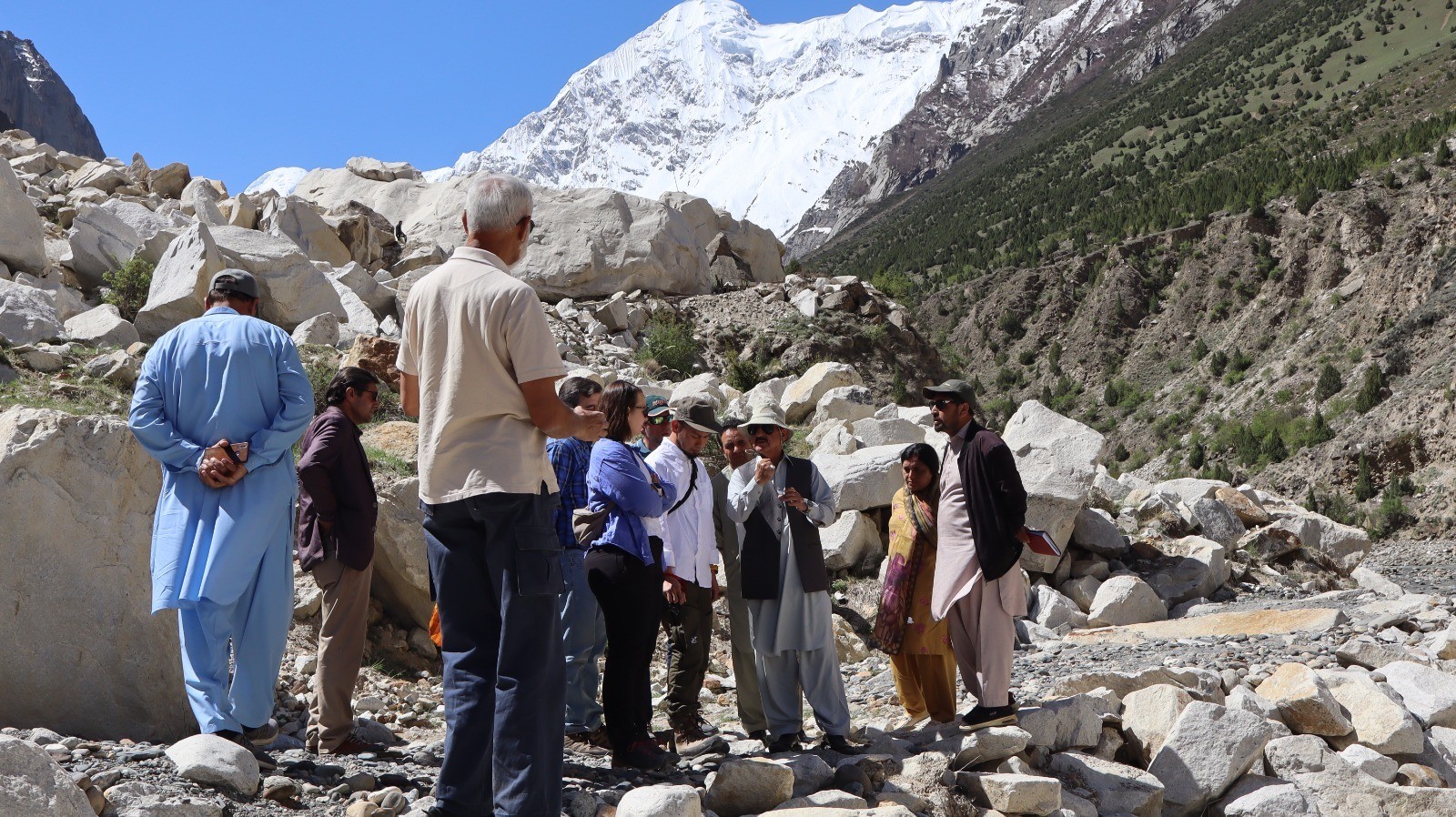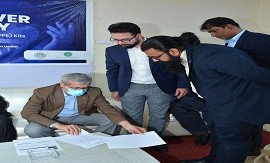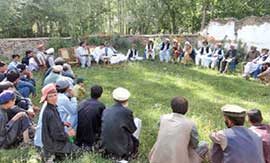
Social Pillar
Social Development occupies a central role in reducing global poverty. It is also one of the three major strategies used by AKRSP to support sustainable development. Social development puts people at the centre of the development process. Inclusiveness is the hallmark of AKRSP’s social development pillar based on the belief that people- and the norms they follow when interacting in groups and in society- directly influence and shape social and economic development.
Since its inception, AKRSP has been building social capital through the formation of Village and Women’s Organisation (V/WOs) and Local Support Organisations (LSO) in order to enhance the social and institutional capacity of men and women in GBC. The LSOs take on a multi-sector agenda in partnership with a wide array of partners including local government departments. LSOs are increasingly adopting a development agenda that goes beyond the traditional AKRSP activities (i.e. infrastructure, agriculture and Microfinance) to include service delivery in social sectors (i.e. Health and education). Some LSOs are going even further by engaging in peace and policy dialogues.
The Current AKRSP social agenda focuses on promoting participatory governance through five sub-themes:
- Institutional Development
- Women’s Empowerment
- Poverty Targeting
- Youth Development
- Policy Dialogue and partnership
These programme components are geared towards building the capacity of local civil society institutions including LSOs, Village and Women’s Organisations, business and farmers’ associations and public and private sector institutions.
Institutional Development:
Institutional development is one of the key components of AKRSP’s social development agenda. Through this component, AKRSP provides support to LSOs, V/WOs and other civil society groups in order to create social capital, an essential factor in developing other forms of capital as well as forming linkages and partnerships with the government and other service providers. Civil society institutions are responsible for the planning, implementation, management and ownership of sustainable development initiatives and programmes.
Since community needs evolve over time, it is essential to ensure that institutional arrangements are in tune with the specific realities of local communities. For that purpose, AKRSP follows a CAT (Capacity, Asset and Trust) strategy focusing on capacity development, financial asset creation and trust building. Since 2005 AKRSP has been supporting the formation of second-tier institutions -Local Support Organisations in GBC. Over 77 registered LSOs are currently functional in the programme area. They have proved to be effective institutions, covering larger geographical areas, supporting development and building linkages and partnerships with higher level public sector institutions, private sector agencies and other development partners.
Institutional Sustainability:
The ultimate objective of AKRSP’s Social Development Programme is institutional sustainability through long term sustainable development in GBC. TO achieve this purpose, AKRSP uses a combination of short and long term strategies that cover range of areas; for instance, it works with the public sector to create an enabling policy environment; it invests considerable resources to enhance human and institutional capacity, creating a new cadre of youth leadership, skill and enterprise; it promotes youth participation in the economy, streamlines development support systems and links institutions to service providers and resources. AKRSP works with the public sector to create an enabling policy environment.
Capacity Building:
Capacity building is an important component of the AKRSP’s Social Development Programme. It is comprised of training courses, workshops, conferences, exposure visits and other special events organised by AKRSP to build the capacity of LSOs, Vos, WOs and YOs and other partner organisations. Through this programme, AKRSP tries to ensure the efficiency, effectiveness and sustainability of its programmes, projects and systems undertaken by all its development partners. In 2013-14, AKRSP continued to focus its efforts and resources on a multi-faceted capacity building programme, confirming its value in promoting rural development.
Social Protection and Poverty Targeting:
AKRSP’s major socio-economic surveys, such as the Socio-Economic Survey of the Northern Areas and Chitral (SESNAC), have repeatedly highlighted core issues surrounding poverty. Despite significant reduction in the incidence of absolute poverty, some people and sections of the population still live in extreme poverty. AKRSP designed special initiatives with a focus on poor and extremely poor families in the programme area, addressing the factors that lead to extreme poverty. These pro-poor interventions include endowment funds, financial grants skills and enterprise development, physical and social projects and training programmes.
In 2013-14, AKRSP provided support to the established of the five Early Childhood Development Centres (ECDs) in the Gilgit region. This brought the total number of ECD centres established with the support of AKRSP to 26.
Policy Dialogue and Partnerships:
AKRSP holds policy dialogues with the government and works in partnership with all development partners to create an environment that enables communities to engage in their own sustainable development.
An enabling environment provides development partners a platform and opportunities to develop common understanding of development issues and challenges in the area. This understanding further paves the way to formulate policies an share services, resources, knowledge, facilities and funds to address the development needs and challenges of the population and especially youth. The policy dialogue and partnerships component has several sub components that include development for a, community linkages, collaborative projects, development networks, skills development, internship and joint research initiatives with the government and development agencies. These collaborative interventions helped partners share and benefit from the knowledge, best practices and experiences that individual development partners gain from their work with communities.






